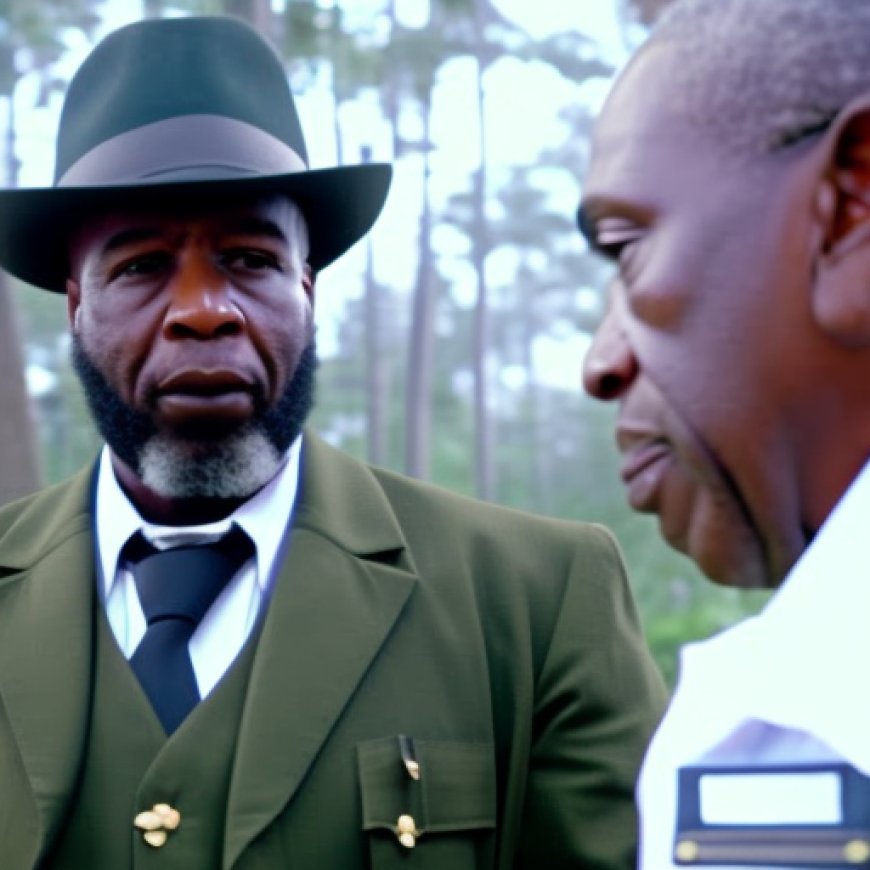New Liberia forest boss plans to increase exports, denies working with war criminal Charles Taylor
New Liberia forest boss plans to increase exports, denies working with war criminal Charles Taylor The Associated Press


Liberia’s Forest Chief Appointment Raises Concerns
Liberia, West Africa’s most forested country, has a long history of illegal logging, which the country’s regulator, the Forestry Development Authority (FDA), has repeatedly struggled to confront.
In an interview with The Associated Press, Rudolph Merab, who has been appointed to lead the FDA despite his companies’ involvement in illegal logging, addressed his past and outlined his plans for managing Liberia’s forests. Merab aims to increase timber exports and reduce regulations.
Sustainable Development Goals (SDGs)
- Goal 15: Life on Land – Protect, restore, and promote sustainable use of terrestrial ecosystems, sustainably manage forests, combat desertification, and halt and reverse land degradation and halt biodiversity loss.
Merab believes that commercial logging has always benefited the country and argues for the need to establish more sawmills in Liberia to process freshly cut trees before exporting them. He claims that Liberia can increase its timber exports without endangering its rainforests, which are home to West African chimpanzees and endangered forest elephants.
Last year, it was revealed that $3 million worth of timber had been illegally logged under the FDA’s previous managing director. The United Kingdom and European Union, major donors to Liberian forest conservation, hoped for a change in government to address these issues.
Challenges and Criticism
- Environmentalists have criticized President Joseph Boakai’s appointment of Merab as the new boss of the FDA.
- Merab strongly opposed a $150 million deal between Liberia and Norway aimed at protecting the remaining forests, arguing that it threatened the logging industry.
- Merab’s company, Liberia Wood Management Corporation, was mentioned in the trial of former president Charles Taylor, who was convicted for aiding rebels during Sierra Leone’s civil war.
Merab denies any involvement in illegal activities and disputes previous government determinations that his companies were engaged in illegal logging. He plans to scale back regulations and laws that he believes hinder productivity.
Conclusion
The appointment of Rudolph Merab as Liberia’s forest chief has raised concerns among environmentalists and stakeholders. The country’s efforts to address illegal logging and promote sustainable forest management are crucial for achieving the Sustainable Development Goals (SDGs), particularly Goal 15: Life on Land. It remains to be seen how Merab will navigate these challenges and fulfill his promises to increase timber exports while ensuring the protection of Liberia’s rainforests.
SDGs, Targets, and Indicators
1. Which SDGs are addressed or connected to the issues highlighted in the article?
- SDG 15: Life on Land
The article discusses the issue of illegal logging and the management of Liberia’s forests, which directly relates to SDG 15, which aims to protect, restore, and promote sustainable use of terrestrial ecosystems, sustainably manage forests, combat desertification, halt and reverse land degradation, and halt biodiversity loss.
2. What specific targets under those SDGs can be identified based on the article’s content?
- Target 15.2: By 2020, promote the implementation of sustainable management of all types of forests, halt deforestation, restore degraded forests, and substantially increase afforestation and reforestation globally.
- Target 15.7: Take urgent action to end poaching and trafficking of protected species of flora and fauna and address both demand and supply of illegal wildlife products.
The article highlights the issue of illegal logging and the need for sustainable forest management in Liberia. Achieving Target 15.2 would involve promoting sustainable management of forests and halting deforestation, while Target 15.7 focuses on addressing the illegal trafficking of protected species.
3. Are there any indicators mentioned or implied in the article that can be used to measure progress towards the identified targets?
- Indicator 15.2.1: Progress towards sustainable forest management.
- Indicator 15.7.1: Proportion of traded wildlife that was poached or illicitly trafficked.
The article mentions the need for sustainable forest management in Liberia, which aligns with Indicator 15.2.1. Additionally, the article discusses the issue of illegal logging and the trafficking of protected species, which relates to Indicator 15.7.1.
SDGs, Targets, and Indicators Table
| SDGs | Targets | Indicators |
|---|---|---|
| SDG 15: Life on Land | Target 15.2: By 2020, promote the implementation of sustainable management of all types of forests, halt deforestation, restore degraded forests, and substantially increase afforestation and reforestation globally. | Indicator 15.2.1: Progress towards sustainable forest management. |
| SDG 15: Life on Land | Target 15.7: Take urgent action to end poaching and trafficking of protected species of flora and fauna and address both demand and supply of illegal wildlife products. | Indicator 15.7.1: Proportion of traded wildlife that was poached or illicitly trafficked. |
Copyright: Dive into this article, curated with care by SDG Investors Inc. Our advanced AI technology searches through vast amounts of data to spotlight how we are all moving forward with the Sustainable Development Goals. While we own the rights to this content, we invite you to share it to help spread knowledge and spark action on the SDGs.
Fuente: apnews.com

Join us, as fellow seekers of change, on a transformative journey at https://sdgtalks.ai/welcome, where you can become a member and actively contribute to shaping a brighter future.







